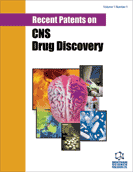Abstract
The presence and function of muscarinic receptor subtypes both in neuronal and non-neuronal cells have been demonstrated using extensive pharmacological data emerging from studies on transgenic mice. Acetylcholine, in fact is synthesized not only in the nervous system but also in other tissues where its local action contributes to the modulation of various cell functions (e.g. survival, proliferation). The possible involvement of acetylcholine and muscarinic receptors in different pathologies has been proposed in recent years and is becoming an important area of study. Although the lack of selective muscarinic receptor ligands has for a long time limited the definition of therapeutic treatment based on muscarinic receptors as targets, some muscarinic ligands such as cevimeline (patents US4855290; US5571918) or xanomeline (patent, US5980933) have been developed and used in pre-clinical or in clinical studies for the treatment of nervous system diseases (Alzheimer and Sjogrens diseases). This review will focus on the potential implications of muscarinic receptors in tumour progression and in nociception and the future use of muscarinic ligands in therapeutic protocols in cancer therapy will be discussed, considering that some muscarinic antagonists currently used in the treatment of genitourinary disease (e.g. darifenacin,; patent, US5096890; US6106864 ) have also been demonstrated to arrest tumour progression in nude mice. Moreover muscarinic agonists such as vedaclidine, CMI- 936 and CMI-1145 have been demonstrated to have analgesic effects, in animal models comparable or more pronounced to those produced by morphine or opiates.
Keywords: Muscarinic receptors, tumours, nociception
 5
5





















